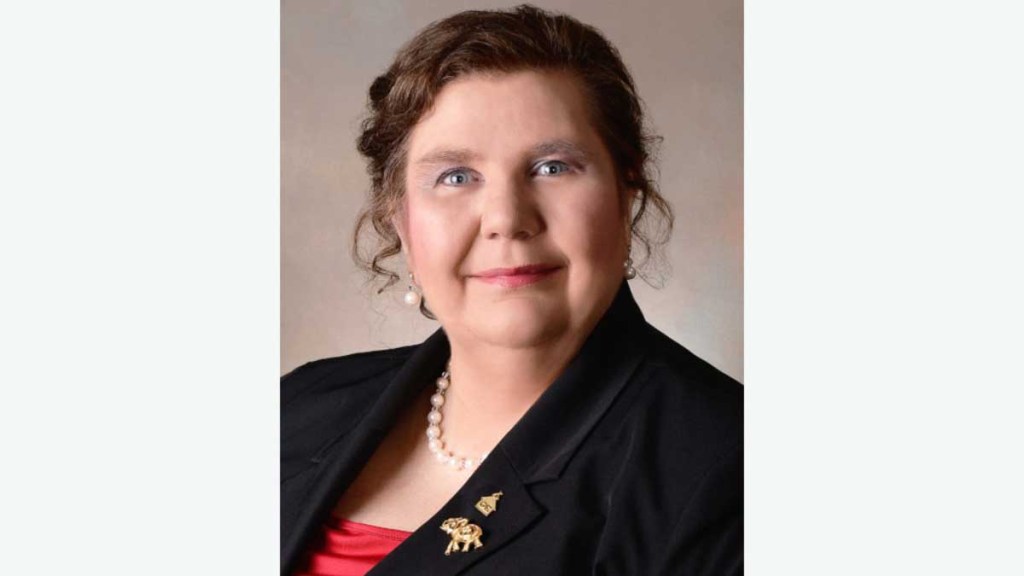President of teachers union visits Moultrie
Published 3:40 pm Thursday, November 18, 2021

- Lisa Morgan is president of the Georgia Association of Educators
MOULTRIE, Ga. — The President of the Georgia Association of Educators visited Moultrie Thursday to hear issues from the local chapter.
Lisa Morgan visited Colquitt County in part to attend the local Colquitt County Association of Educators meeting but also to speak with teachers and other educational representatives regarding issues in the district.
“I’ll be meeting with them to hear the concerns from the local educators. After about a year and a half of dealing with COVID, the word I hear most from educators is ‘exhausted,’’ Morgan said in an interview Thursday morning.
The GAE is currently the only educator advocacy group that has platforms on the local, state and national level, Morgan said. She said it gives a voice not only to teachers but all those within the educational field.
The Colquitt County School District, much like many other districts around the United States has seen more vacancies in positions such as nutritional specialists, bus drivers, custodians and substitute teachers. Colquitt County Superintendent Ben Wiggins stated in a previous article in The Observer that “the need for these positions goes back some time but has been exacerbated by the pandemic.”
Morgan agreed saying, “This is a nationwide issue. We are seeing a severe lack of substitutes. We’re seeing an educator shortage and the lack of substitutes is just compounding that. But this trend has existed before the pandemic.”
The GAE has recently been “working closely” with Gov. Brian Kemp and his office to complete the total $5,000 raise that he promised to classroom teachers during his campaign. To date, $3,000 of his $5,000 promise has been realized. Morgan says that steps like this are going to help fill open positions but many non-classroom positions still are being under-funded and “under-salaried.”
“The bus drivers, the custodians, the cafeteria workers, front office personnel and paraprofessionals need to have a living wage and in many cases, they do not,” Morgan said.
The Colquitt County Board of Education has made some progress on this front. In their August meeting, board members approved an updated salary schedule that included raises to hourly wage employees and an increase to the local teacher salary. Within that same meeting they also decreased the millage tax rate to “third lowest in the state,” Colquitt County Chief Financial Officer Jeremey Jones said at the time.
Morgan said the BoE could use its American Rescue Plan funds to add retention bonuses or hiring bonuses but short staffing is an “ongoing statewide issue.”
She explained further than many rural school districts have been utilizing ARP funds to have greater access to technology or upgrade their existing technology. At the beginning of the 2021-2022 school year, the Colquitt County High School was able to complete a “one to one” student-laptop ratio. Morgan agrees this is a “good first step” but it can highlight other issues such as student’s access to broadband.
“One to one is great, but I ask, ‘Have we looked at the access?’ If the student doesn’t have internet access at home, it’s a paperweight. You can’t do anything with it. I know some districts have been trying to get portable (wi-fi) hotspots for kids. We hope that districts will look at that. It’s not only getting the device but what else students might need to access the internet.”
One of the biggest issues facing the BoE and CCHS is the changing of scheduling from a 50-minute, seven-class hybrid block schedule to a 90-minute, four-class block schedule. CCHS Principal Dan Chappius presented the schedule proposal at the Nov. 15 BoE meeting and highlighted the benefits and challenges of the new schedule. Benefits include possible increases to graduation rate, test scores and pathway completions.
Morgan says that whatever a district does to improve their statistics such as a graduation rate or test performances, it must listen to the teachers and the parents.
“I am the queen of saying ‘a child is more than a test score, a teacher is more than a class average, a school is more than a (College and Career Ready Performance Index) score.’ In these decisions we ask our school boards to take into consideration the input they receive from two groups of people: educators and parents… I know a lot of districts go to the block schedules because it offers students a much bigger opportunity to take different classes… Listening to the parents is the key, we’ve found, to success.”





